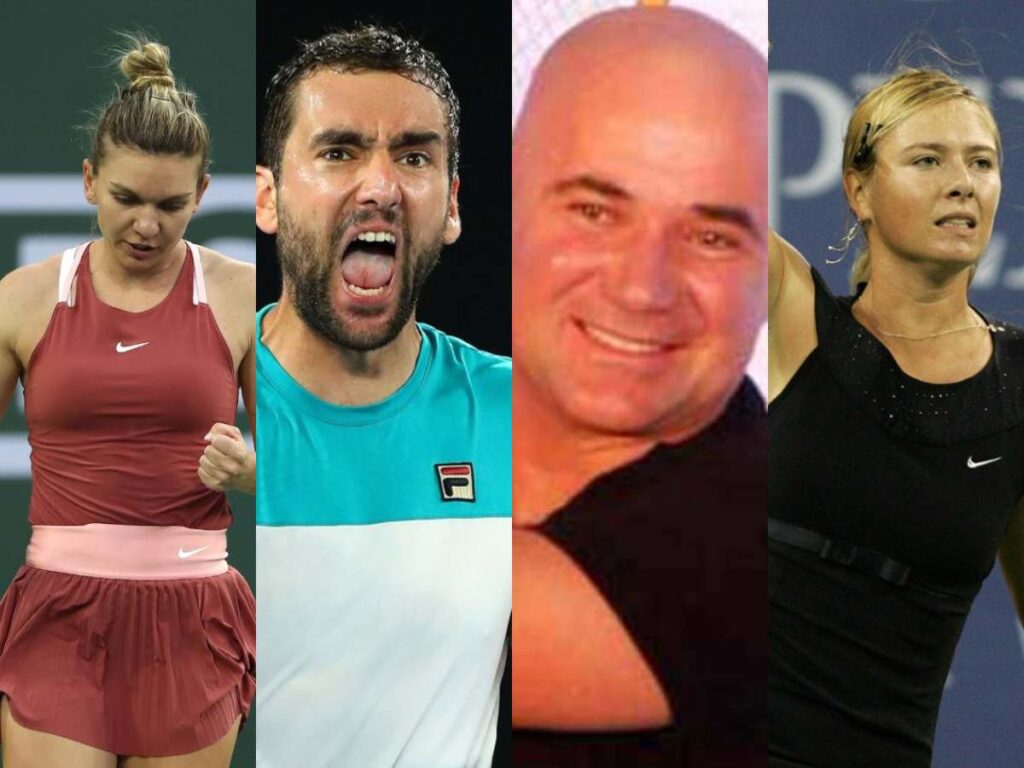Varvara Lapchenko’s drug ban sentence gets reduced after she receives ‘Consent Award’, ready to compete from May
Varavara Lepchenko got her ban period shortened to 21 months.

Varvara Lepchenko (Image Credit: ESPN)
🔍 Explore this post with:
A “consent award” was given to American tennis player Varvara Lepchenko nearly two years after she tested positive for a prohibited substance during a normal drug test. After discovering a container of tablets that did not clearly identify the prohibited substance, the former world No. 19 successfully challenged her four-year ban at the Court of Arbitration for Sport (CAS). As a result, her suspension has been reduced to 21 months and will be lifted in May of this year.
After providing a urine sample in 2021, Lepchenko returned a positive test for metabolites of adrafinil and/or modafinil, non-specified substances that the World Anti-Doping Agency (WADA) and the Tennis Anti-Doping Program both forbid. But after successfully appealing the CAS’s decision to declare the veteran unfit to compete for four years, the organization has now given the American tennis player a “consent award.”
According to the International Tennis Federation (ITF), Her appeal was based on the fact that after the Independent Tribunal hearing, she went home and discovered a bottle of bemetil capsules she had bought in Ukraine in October 2020 and used capsules from in the days leading up to the WTA Hungarian Grand Prix tournament in Budapest, Hungary.
The ITF also stated that those capsules and a separate, unopened container it had obtained independently had been forwarded to a WADA-accredited lab for testing. Both were discovered to contain modafinil, which was not disclosed on the bottle label.
All parties reached an agreement that the period of ineligibility needs to be shortened to 21 months. Along with agreeing on the backdate and shortening the 36-year ineligibility period, all parties also concurred, with WADA’s formal consent, that the Ukrainian American had broken the program’s rules. The prize money and the ranking points that she earned during the course of the event in Hungary and afterwards have also been disqualified. However, it is certainly a big relief for the American player to be able to return to the courts and compete in WTA tournaments.
Keep Exploring: “I do not consider myself an example to follow,” Coco Gauff makes a surprising claim about herself
Growing usage of performance-enhancing drugs in tennis sport

The association between tennis and tennis players using banned substances that can help them perform better is long. Many prominent and popular names have used prohibited and banned substances to help themselves improve their performances on the court.
Andre Agassi tested positive for using methamphetamine, a banned drug, in 1997. However, he got off the hook since he put all the blame on a spiked drink. But in his autobiography, Open: An Autobiography, he admitted to lying in his case.
Aside from the American tennis legend, Richard Gasquet, Marin Cilic, and Victor Troicki have all admitted to using prohibited substances during their careers. Even women’s tennis is plagued by this ordeal. Martina Hingis, Barbora Záhlavová-Strcová, and Maria Sharapova have either been banned or suspended for using banned substances.
Simona Halep is the latest high-profile tennis player to be suspended and banned from participating in any WTA or ITF tournament. However, she has appealed her case and consistently denied any wrongdoing. The relevant authorities are still investigating her case.
Incase you missed it:
Toni Nadal had a lukewarm response to former women’s Tour player as Spain’s new Davis Cup captain







